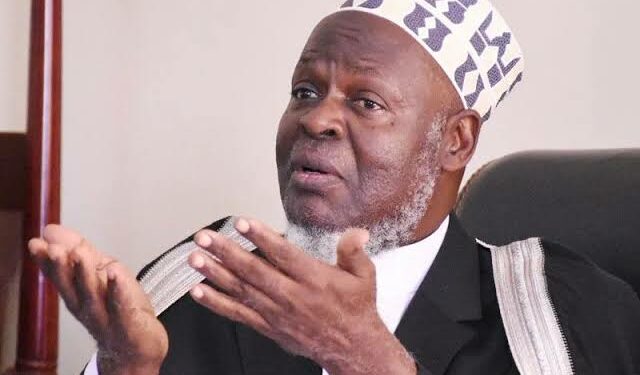Sheikh Shaban Ramadhan Mubajje, the Mufti of Uganda, made a clarion call urging the Ugandan Government to ban the popular Social Media platform, TikTok, citing its misuse and potential to incite violence and division among Ugandans.
His call for a ban raises several important questions about the platform’s role in society and the broader debate over the regulation of Social Media.
During Idd-ul-Fitr prayers at the Old Kampala mosque on March 30, 2025, Mubajje criticized TikTok, calling it a “useless platform for idlers, content seekers, and those who witch-hunt others.”
He expressed concern that the platform, which has 5.5 million Ugandan users according to the Uganda Communications Commission’s 2023 report, could contribute to societal unrest if left unchecked.
Mubajje’s concerns about TikTok’s potential to spark violence cannot be dismissed. But one must question whether banning the platform is the right solution. Social Media platforms, including TikTok, have become powerful tools for communication and expression, especially among young people.
Is it fair to label the platform entirely as “useless” and “a problem” without considering its positive aspects, such as enabling individuals to share their creativity and connect with others across the world?
Mubajje also pointed out that TikTok is being misused by some Muslim sheikhs, who, in his view, are spreading disunity within the Muslim community. But are these issues unique to TikTok, or do they reflect broader challenges with how religious and political figures engage with social media?
What responsibility do platforms like TikTok have in preventing harmful content, and where should the line be drawn between regulation and freedom of expression? That should be a question for the Government, especially in consort with the religious authorities, ought to answer!
Additionally, Mubajje’s call for a TikTok ban comes at a time of significant controversy surrounding his leadership. In March 2025, the Mufti’s controversial five-year tenure extension sparked protests and legal battles within the Muslim community.
Some argue that Mubajje’s leadership is unconstitutional, and many of these disputes have played out on Social Media, particularly on TikTok. In this context, does his critique of TikTok reflect a genuine concern for public welfare, or is it part of a broader narrative about his leadership challenges? Or, is Mubajje irked because Ti Tok has been used to question his extension of the Muslim leadership?
As the debate over Mubajje’s leadership continues, his call to ban TikTok adds another layer to Uganda’s ongoing discussions about the role of Social Media.
With millions of Ugandans engaging on these platforms daily, it remains to be seen whether the Government will take action to address these concerns or whether a more nuanced approach to Social Media regulation will emerge.
In the end, is banning TikTok the right way forward, or should the focus be on finding better ways to use and regulate Social Media for the benefit of all Ugandans?
Do you have a story in your community or an opinion to share with us: Email us at editorial@watchdoguganda.com









